- Home
- Elizabeth Knox
Wake Page 28
Wake Read online
Page 28
Theresa was surprised by the compressed coherence of his answer. Sam had told Belle that the man spoke English, but Theresa hadn’t imagined his English would be so good.
‘Why didn’t you do something to help her?’ Jacob asked.
‘She wasn’t warm,’ said the man.
‘Is that how it works?’ Jacob said. ‘For you to help her did she need to be alive? I thought—since you healed Sam—’
The man looked immensely surprised. ‘What do you mean?’
‘You healed Sam,’ Jacob said, and touched his own chest. ‘During the Madness Sam cut off her nipple. She had nothing here but a healing wound.’
‘I didn’t look under Sam’s clothes.’
‘Why are you lying?’ Theresa was in despair. ‘Why would you finally come to face us, then lie? Why would you run away from William only two days ago, but come now? It doesn’t make any sense!’
Belle arrived with a sheet to cover Lily. Jacob helped Belle roll Lily onto the sheet, and they folded its sides over her body, neatly and expertly.
For some time the sky had been lowering, and the temperature falling. Now there was a scattering of fat drops that fell, pock, pock, on Lily’s shroud. Then the air thickened with rain so hard that it activated the man’s force field, until he stood in a halo of clear air from which the drops rebounded like sparks. ‘The Wake changed Sam,’ the man said. ‘I’m sorry.’
Theresa was about to ask what he meant by ‘the wake’, but then Bub said, bemused, ‘You’re sorry Sam’s fixed?’
‘I’m sorry she’s broken,’ the man said.
‘I get it that we shouldn’t be surprised when we don’t understand you,’ Theresa said, ‘given that you’re some kind of alien. But what I’m asking myself is, should you be confused by us?’
‘No,’ the man said. ‘But my experience doesn’t encompass Sam’s experiences. She knows that the Wake is there. No one ever knows. And you say she was mad. Only those who are present when the Wake arrives go extravagantly mad. And, mad or not, no one present when it arrives has ever survived. How did she survive? That’s something I need to know. I kept Sam captive because I wanted her to explain. But before she was able to tell me, the Wake came, and made her hollow.’
‘Huh?’ said Bub. ‘What do you mean, the wake?’
‘You’re sounding like a near miss in Google Translate,’ Belle said. ‘What is it you’re talking about when you use that word?’
The man said, ‘I told Sam. She would explain if she was able to. But the Wake changed her. She still functioned, only poorly. And she was afraid of me, as if we had not just spent several hours in rational talk.’
‘Um,’ piped up Oscar from nearby, ‘there are two of her.’
‘Oh—yes,’ Jacob said, ‘apparently there are two Sams. We don’t know whether she’s pretending, or has a pathology. There’s a sweet, stupid Sam, and a smart, experimental one. The pathology is known as Dissociative Identity Disorder. There is some debate about whether it’s a genuine mental illness, or some kind of extravagant self-dramatisation.’
‘It isn’t something I’ve encountered before,’ the man said. Then, ‘Tell Sam I need to talk to her.’
Bub ventured near, and poked his finger into the man’s blurred casing of rebounding rain. ‘Buddy, we want to talk to you. But all you do is go on about some wake.’
‘Sam knows what you want to know,’ the man said. ‘Ask her.’
‘She might not remember,’ Theresa said.
The man frowned. ‘You are saying that there is one Sam under the other. And that one of them is prepared to know things and understand them, while the other is a refusing Sam who turns up any time she feels fear or unhappiness?’
‘Man,’ said Bub, admiring, ‘you just put the nut in a nutshell.’
‘The Sam who is prepared to know will tell you, if she isn’t broken,’ the man said.
‘We’ll ask her,’ Theresa promised.
The alien turned his back on them and walked away. Bub said, ‘Hey!’ He raised the gun he’d taken off Dan. He sighted down the barrel at the retreating figure.
Theresa was positive Bub meant only to relieve his feelings by taking aim, but then the barrel jumped and she was deafened by the sound of the shot—Bub had let off both barrels simultaneously. She closed her eyes and clapped her hands over her ears and had actually to force herself to open her eyes again and look.
The man was much further down the drive. He’d been knocked over and had skidded off, and was now moving gingerly, not because he was injured, but because his force field wouldn’t at first let any part of him resume contact with the ground. He was patient, and was soon upright. He paused a second to regard them, then continued on his way.
They were all frozen in place. Theresa was opening and closing her mouth to make her eardrums stop squeaking. Bub looked sheepish. The people who’d stayed on the terrace drifted down to stand around the insubstantial shape in the wet shroud. Holly sat down beside Lily—unmindful of the puddles. She put a hand on the shroud and gave Lily a kind of consoling pat.
‘Let’s take her inside,’ Jacob said. He helped Holly up and moved her gently to one side so that he could lift Lily. Bub came to offer assistance, and Jacob scowled at him.
Bub apologised. ‘Sorry. My trigger finger got angry.’
‘We did this,’ Holly said, staring at the shroud. ‘We let her down.’
‘Her running looked positive,’ Theresa said. ‘She wanted to stay in shape. There was a race she’d entered—in March, I think. She hoped to be out in time to compete in it.’
‘We can’t look after one another,’ Holly said.
‘We just have to try harder,’ said Theresa.
‘We treated Lily like an adult and let her run herself into the ground,’ Holly said. ‘We left Curtis alone, and he died of our neglect. We have meetings and take votes and talk things over and give one another space, but we can’t manage the big decisions. We can’t take responsibility. Someone needs to do that—take responsibility.’
‘Yes. You’re right. But all we can do is try harder,’ Theresa said. ‘I promise I will.’
Everyone went indoors with Lily, except Bub, who stayed out on the terrace and watched the gate expectantly, waiting for William and Sam.
Sam opened her eyes. Her pupils kept altering as her gaze wandered around the room. William picked up her hand and put it against his cheek. The hand was softer and less densely muscled than he remembered. Sam had the hands and arms of someone who did manual labour, finer than Bub’s, but stronger than Jacob’s.
She tried to sit up. William helped her, but kept his arms around her. She let out a small sigh and leaned on him, her soft head tucked under his chin. Her hair smelled of Pears soap. ‘I didn’t go away,’ she said. She turned her face into his open shirt and pressed her lips against his collarbone. They were plump and hot, dry and scabbed. ‘You’re warm,’ she said.
William sighed, and folded her in his arms. They rested, listening to the rain on the steel roof. William stroked Sam’s back and watched the runnels of grey light on her face. She was completely relaxed, and present. She kept her eyes on his.
‘What am I going to do with you?’ he said.
‘I think there’s very little that can be done with me. I think I’m a single-use thing.’ She looked at the scattered rolls of aluminium foil. ‘We have to rig our lights and send messages.’ She met his eyes. ‘When a plane goes down with enough warning, people switch on their phones and call their loved ones. All of you will have someone you want to say goodbye to.’
‘I don’t,’ said William.
‘Me neither—no one I can, anyway.’
When they were walking, hand in hand, up the driveway, Sam noticed the open grave beside Adele Haines’s flower-covered mound. She stopped and said, ‘Is that for me?’ Then, ‘I hope that’s for me. A precaut
ionary grave.’
‘Who does that? Isn’t it always the other way around—people have every reason to believe someone is dead and they don’t have a funeral till they find the body?’
‘I don’t think I have a normal attitude to those things,’ Sam said. ‘Because of my sister.’
‘Your twin sister?’
‘Yes. Because of her body.’
‘Being lost?’
‘Because her body is never beside mine.’
‘Yes, lost,’ William thought. He said, ‘That grave is for Curtis. He died. It was blood-poisoning.’
‘Why didn’t you tell me?’
‘I just did.’ He led her indoors.
The spa was dark and there were none of the usual cooking smells. The place was so quiet that at first they didn’t notice the figures scattered around the dining room, all of them except Belle and Bub sitting alone. There was candlelight shining through a crack in the door to the conference room.
A chair scraped, and Theresa came out of the dining room. ‘It’s Lily. She’s in there.’
William put his arm around Sam’s waist, and they walked into the candlelit conference room.
When the rain stopped, Jacob and William went out, hung a lantern in the lower branches of the jacaranda, and dug another grave. They took turns digging, and when Jacob paused and leaned on his shovel he registered the sound of katydids singing in the wet shrubbery.
So—it was summer.
At midnight Dan found Holly busy in the kitchen, kneading bread dough.
‘It’s for tomorrow. Lily and Curtis’s funeral lunch,’ Holly said. ‘It seems I’ve been at this bench for months.’
Dan, sensing a reproach, reminded Holly that she’d always had help. ‘Though we should probably make up a roster. Now that the heroes have let the rest of us off mass burials and manhunts.’
‘The heroes,’ Holly said, and laughed. ‘That says everything, doesn’t it?’ She looked around at him. ‘I’m fine, Dan. This just has to be done. And now is better than later.’
Dan gave her shoulder a friendly squeeze and left her to it.
Jacob decided to sit vigil with Lily. He carried some fresh candles into the conference room and saw that someone else had been there before him. They had surrounded Lily’s narrow, shrouded form with damp foliage—oleander, though it wasn’t yet in bloom.
At midnight Theresa finally decided to put herself to bed. On her way upstairs she ran into Bub and Belle, who were burdened with bundles of bedding and backpacks. Theresa took Belle’s arm. ‘Where are you going?’
‘We’ll be back tomorrow morning for the funeral,’ Belle said.
‘But only for the funeral,’ Bub added, and clenched his jaw.
‘We’ve decided to move into Sam’s bach. We want to be together,’ Belle said.
‘Together alone,’ Bub added.
Theresa released her friend.
Belle looked stricken. ‘I think I can only look after Bub and my kakapo.’ She gave Theresa a beseeching look. ‘I’m not managing, Tre.’
‘It’s okay, babe, Theresa gets that,’ Bub said. Then, to Theresa, ‘We’ll see you tomorrow.’
Theresa told them to keep safe.
There was a light shining under William’s door. Theresa knocked and heard a muffled ‘Wait’. She hovered, and after a time William opened the door and slipped through it. Theresa had a glimpse of the bed and the tumbled waves of Sam’s dark hair.
William took Theresa’s arm and led her downstairs. There he turned on the light behind the bar and found a bottle of whisky, a few inches left at the bottom. ‘Warren has certainly made a dent in the top shelf.’ He sprawled in a chair, whisky bottle in one hand and two glasses in the other.
He had only put on jeans. Their knees were grass-stained. He was sweating, and droplets of moisture on his stomach trembled with every breath he took. Theresa could see that he was already a little drunk. He raised one eyebrow, proffered the glass, and shook the bottle invitingly.
Theresa took a seat and accepted the glass.
He raised his bottle to toast.
‘What are we drinking to?’
His face looked congested; his eyes were gleaming. ‘Nothing, nothing, nothing.’ He put the bottle to his lips and tipped his head back. ‘Look at you—’ he said, ‘—businesslike Theresa. Any moment you’re going to say, “I’m expecting a report, William.”’
Theresa was silent.
William went on, ‘Or you’re going to put your glass down, wipe your mouth and say, “I’ll talk to you when you’re sober.”’
Theresa tried to school her breathing. She’d wait this out.
‘So,’ William said, ‘which is it to be?’
Theresa shrugged.
William mimicked the shrug.
‘Curtis and Lily are dead,’ Theresa snapped. ‘Where’s your sense of decency?’
William subsided into his chair, arms hanging. ‘Do you imagine I’m civilised?’ he said. He dropped the bottle; it landed upright, spilling nothing, but the life seemed to go out of it, as if his touch had given the greasy glass some extra brilliance. ‘Go on. Tell me off. Relieve your feelings.’
Theresa clenched her teeth and tried not to fume too visibly.
William went on in a musing tone. ‘Though, you know, I don’t actually enjoy listening to you. I mean—I hate the way most of you sound. Kate has that crisp British pronunciation—very refined and ladylike. And then there’s the rest of you Kiwis, with your blurry, unforthright voices. Jacob’s shrinking defensiveness, the way his voice always rises at the end of every sentence as if he’s constantly asking for affirmation. And Bub with his cute syncopated accent—a big tough guy who sounds infantile.’ William paused for a time and Theresa could see that he was checking the truth of his own feelings, as if he’d only understood them once he’d articulated them. He met her eyes. ‘You’re all children,’ he said. ‘Moral infants.’
There was a long silence. Theresa finally got up, retrieved the bottle and poured herself another drink. She put the bottle back into William’s hand. ‘You’re baked,’ she said.
William laughed.
‘The alien brought back Lily’s body. He wants to talk to Sam.’
‘He told her—’ William paused and looked away.
Theresa made a winding motion. ‘Go on.’
‘I think what he told her is that we’re all going to die.’
Theresa wondered what her face was doing. She felt that her body had thickened, and gone stiff, like cooked egg.
‘Take a moment,’ William said. He suddenly sounded very professional and Theresa realised that, like her, his work sometimes involved giving people horrendously shocking news.
‘I’m okay,’ she said. ‘You can go on.’
‘That’s it. That’s all I’ve got. She wouldn’t confide in me.’
There was another long silence. Theresa wasn’t actually sure how much time passed before William continued. ‘I said, “Tell me, Sam.” I said, “It’s okay, you can tell me. I have a hard heart.” But that only made her cry.’
Theresa was postponing feeling anything. She’d wait till she had all the facts.
‘What I think is this: there is something trapped in Kahukura with us, probably by the man in black. I think Sam has always known. Kind of.’
‘The man said something like that when he brought Lily. He was talking about something he called a wake, which caused the madness.’
‘A wake?’
Theresa nodded.
‘Remember you told me how, when Warren overdosed, Sam kept saying, outraged, “What is that?” I think that was clever Sam’s first time with the thing. Simple Sam calls it “the wind”. It comes when we’re in despair. It was there when we buried Adele Haines, and the night we came in after clearing the daycare centre, when simple Sam was twirling
on the terrace. She was dancing with it.’
‘Yes,’ said Theresa. ‘What interests the man in black is that Sam knows it’s there.’ She picked up her glass and took a big swallow. ‘After the funeral tomorrow we should have a meeting. See if we can’t persuade Sam to treat us like adults and fill us in.’
The funeral was subdued. It was raining on and off—that sodden early summer weather that comes into Tasman Bay from the southwest. Nobody had an umbrella. They all stood bareheaded in the rain.
Oscar shuffled to the back of the group. Since he’d grown tall and begun to block people’s views he habitually stood at the back. Besides, he didn’t want to look at the shrouded forms, or anyone’s face. Instead he gazed at the feijoa hedge downhill, and the wall of macrocarpa on the far side of Bypass Road. The hedges and road reserve were blurred and lumpish, and it occurred to Oscar that the road reserve hadn’t been mown, and was sprouting thistles and blue borage, and that normally it was about now that the Tasman District Council sent their hedge trimmers, the marks of whose blades would show for months in the fleece of the roadside hedges.
Kahukura was going to seed, and had ceased to look like Oscar’s hometown.
Oscar thought about Lily, and how bogus he felt standing at her graveside. He knew he had spoken to her often—but never about anything much. At that moment he could only recall her swinging ponytail and receding back. He tried to summon Curtis—whom he’d actually liked—but couldn’t remember anything concrete about him. It occurred to Oscar that he didn’t really know any of them. And then that he didn’t really know anybody, and wasn’t close to anyone any more. Sure—he’d had schoolmates he used to meet every weekday on the bus to Nelson Boys, and friends he’d chat to in a sidebar while playing Heroes of New Earth—but if he met one of those kids now he wouldn’t know how to start a conversation. He gave it a go. At the graveside, under his breath, he practised an imaginary greeting. ‘Sup?’ Oscar said, to the drizzle, and everyone’s backs.
What was up? Not him. For the rest of his life he was going to be one of those gloomy, seen-it-all people—a special kind of loser.

 Revival
Revival Santa's Naughty Helpers
Santa's Naughty Helpers Chaz (Reapers MC Book 14)
Chaz (Reapers MC Book 14) Deceit (The Clans Book 4)
Deceit (The Clans Book 4) Wait on Me (Knights of Retribution MC Book 2)
Wait on Me (Knights of Retribution MC Book 2) Bossed Up (Iron Vex MC Book 2)
Bossed Up (Iron Vex MC Book 2) Booger (Reapers MC Book 3)
Booger (Reapers MC Book 3) Degrade: A Dark Mafia Romance (DeLancy Crime Family Book 1)
Degrade: A Dark Mafia Romance (DeLancy Crime Family Book 1) Chaos: A Reapers MC Boxset
Chaos: A Reapers MC Boxset Zorro (Reapers MC Book 16)
Zorro (Reapers MC Book 16) Venomous (The Clans Book 11)
Venomous (The Clans Book 11) Zane (Reapers MC Book 11)
Zane (Reapers MC Book 11) Hate on Me (Knights of Retribution MC Book 3)
Hate on Me (Knights of Retribution MC Book 3) Web of Lies
Web of Lies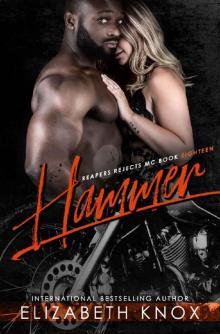 Hammer (Reapers Rejects MC Book 18)
Hammer (Reapers Rejects MC Book 18) Consumed: A Driven World Novel (The Driven World)
Consumed: A Driven World Novel (The Driven World) Anguish
Anguish Frost (Reapers MC Book 15)
Frost (Reapers MC Book 15) Alluring Allies
Alluring Allies Covert (The Clans Book 9)
Covert (The Clans Book 9) No Limits: A Taboo Anthology
No Limits: A Taboo Anthology Malicious: A Nomad Biker Novel (Raiders of Valhalla MC Book 1)
Malicious: A Nomad Biker Novel (Raiders of Valhalla MC Book 1) Venom's Secret (Iron Vex MC Book 4)
Venom's Secret (Iron Vex MC Book 4) Forbidden Love: Book 1 in the Mackenzie Series (Leave Me Breathless World)
Forbidden Love: Book 1 in the Mackenzie Series (Leave Me Breathless World)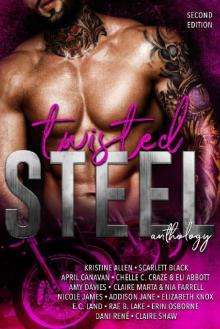 Twisted Steel: An MC Anthology: Second Edition
Twisted Steel: An MC Anthology: Second Edition Mouser (Reapers MC Book 9)
Mouser (Reapers MC Book 9) Sharp Edges (Full Throttle Book 2)
Sharp Edges (Full Throttle Book 2) Blackjack
Blackjack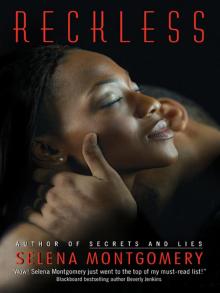 Reckless
Reckless Blood & Torment (Pins and Needles: Moscow Book 2)
Blood & Torment (Pins and Needles: Moscow Book 2) Demise (The Clans Book 13)
Demise (The Clans Book 13) Defiant (The Clans Book 6)
Defiant (The Clans Book 6) Flawed (The Clans Book 12)
Flawed (The Clans Book 12) Amara (Reapers MC Book 12)
Amara (Reapers MC Book 12) Widow (Reapers MC Book 4)
Widow (Reapers MC Book 4) Callous King (The O'Dea Crime Family Book 1)
Callous King (The O'Dea Crime Family Book 1)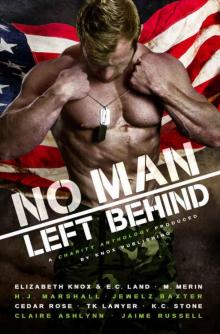 No Man Left Behind: A Veteran Inspired Charity Anthology
No Man Left Behind: A Veteran Inspired Charity Anthology Finley's Adoration
Finley's Adoration Sinister (Raiders of Valhalla MC Book 2)
Sinister (Raiders of Valhalla MC Book 2) Ruthless (The Clans Book 8)
Ruthless (The Clans Book 8) Filthy Valentine: A Dungeon Demons MC Prequel
Filthy Valentine: A Dungeon Demons MC Prequel Havoc- Reapers MC Boxset
Havoc- Reapers MC Boxset Mayhem: A Reapers MC Boxset
Mayhem: A Reapers MC Boxset The Absolute Book
The Absolute Book Dangerous Love (Mackenzies Book 3)
Dangerous Love (Mackenzies Book 3) Omen's Sign (Iron Vex MC Book 5)
Omen's Sign (Iron Vex MC Book 5) Call My Bluff: A Las Vegas Themed Anthology
Call My Bluff: A Las Vegas Themed Anthology Blood & Agony: A Dark Criminal Romance (Pins and Needles: Moscow Book 1)
Blood & Agony: A Dark Criminal Romance (Pins and Needles: Moscow Book 1)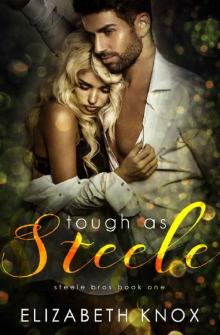 Tough as Steele (Steele Bros Book 1)
Tough as Steele (Steele Bros Book 1) Dixon (Reapers MC Book 10)
Dixon (Reapers MC Book 10) Stripping a Steele (Steele Bros Book 2)
Stripping a Steele (Steele Bros Book 2)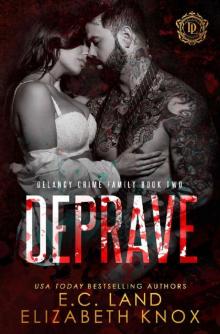 Deprave (DeLancy Crime Family Book 2)
Deprave (DeLancy Crime Family Book 2) Vex's Temptation
Vex's Temptation Stripping a Steele
Stripping a Steele Dreamhunter
Dreamhunter The Trade
The Trade Against All Odds (Full Throttle Book 1)
Against All Odds (Full Throttle Book 1) Call My Bluff
Call My Bluff Sydney's Battle (Reapers Rejects MC: Second Generation Book 1)
Sydney's Battle (Reapers Rejects MC: Second Generation Book 1)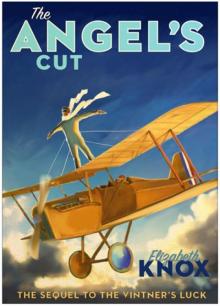 The Angel's Cut
The Angel's Cut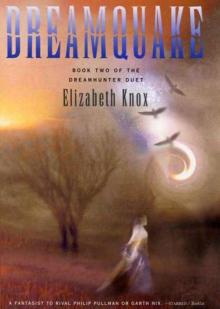 Dreamquake
Dreamquake Dreamquake: Book Two of the Dreamhunter Duet
Dreamquake: Book Two of the Dreamhunter Duet Reckoning (Skulls Renegade MC Book 5)
Reckoning (Skulls Renegade MC Book 5)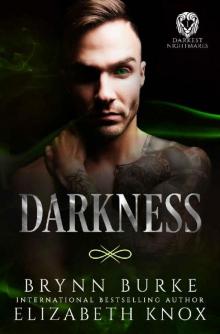 Darkness (Darkest Nightmares Book 1)
Darkness (Darkest Nightmares Book 1) Switched (Sin City Fets Book 1)
Switched (Sin City Fets Book 1)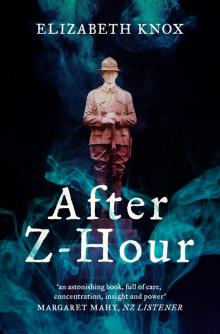 After Z-Hour
After Z-Hour Axel (Reapers MC Book 17)
Axel (Reapers MC Book 17) A Visit to the House on Terminal Hill
A Visit to the House on Terminal Hill Scarred (Demons of Hell MC Book 1)
Scarred (Demons of Hell MC Book 1) Stolen Hearts: A Dark Billionaire Collection
Stolen Hearts: A Dark Billionaire Collection Promised (The Clans Book 1)
Promised (The Clans Book 1) The Trade (The Clans Book 2)
The Trade (The Clans Book 2) Revenge
Revenge Daylight
Daylight Redemption
Redemption Overzealous Alphas
Overzealous Alphas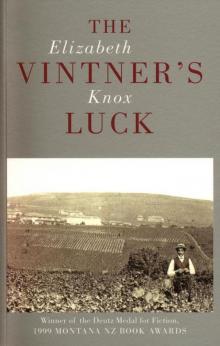 The Vintners Luck
The Vintners Luck Wake
Wake Corrupted Love: A Dark Mafia Romance (Mackenzies Book 2)
Corrupted Love: A Dark Mafia Romance (Mackenzies Book 2)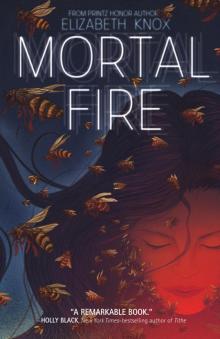 Mortal Fire
Mortal Fire Reckoning
Reckoning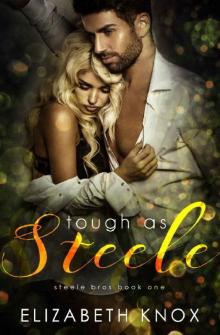 Tough as Steele
Tough as Steele Scarred
Scarred Relentless (Skulls Renegade Book 4)
Relentless (Skulls Renegade Book 4) Billie's Kiss
Billie's Kiss Reclaimed (Skulls Renegade MC Book 6)
Reclaimed (Skulls Renegade MC Book 6) Deceptive Love: A Dark Mafia Duet (Mackenzie & Volkolv Book 1)
Deceptive Love: A Dark Mafia Duet (Mackenzie & Volkolv Book 1)